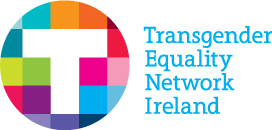Ireland has an obligation to provide birth certificates listing people’s true gender. This obligation arises from European and international human rights treaties. The State has as yet not put that right into
Background
Dr Lydia Foy has lived as a woman since 1991. In March 1993, Dr Foy applied to the office of the Registrar General for a new birth certificate to reflect her gender. She was refused.
In April 1997, after a number of years’ unsuccessful correspondence with the Registrar General’s office, Dr Foy initiated High Court proceedings to compel the Registrar to issue her with a new birth certificate. In October 2000, the case was heard in the High Court by Mr Justice Liam McKechnie. His judgment was delivered in July 2002: Dr Foy’s claim was rejected due to the lack of Irish or UK legislation that would facilitate the overturning of the existing jurisprudence. Justice McKechnie called on the Government and Oireachtas to deal with the position of transgender people as a matter of urgency: “Could I adopt what has repeatedly been said by the European Court of Human Rights and urge the appropriate authorities to urgently review this matter.”
Two days after Justice McKechnie’s judgement, a legal precedent was set. On 11 July 2002, the European Court of Human Rights found in favour of Christine Goodwin’s case to have a correct birth certificate (Christine Goodwin v. UK): “the unsatisfactory situation in which post-operative transsexuals live in an intermediate zone as not quite one gender or the other is no longer sustainable”.
Courts
Dr Foy appealed to the Supreme Court but before the appeal was heard, the European Convention on Human Rights Act 2003 (the ECHR Act) was enacted, bringing the European Convention into Irish domestic law. In November 2005 Dr Foy made a new application to the Registrar General, asserting the obligation under the ECHR Act to comply with the requirements of the European Convention. Refused once again, she began new proceedings in the High Court, seeking a declaration under the ECHR Act that Irish legislation was incompatible with the European Convention regarding the registration and issue of birth certificates.
Dr Foy returned to the High Court in April 2007, 10 years after her legal challenge began. The case was heard (again) by Justice McKechnie whose judgment, on 19 October 2007, expressed great frustration at the failure of the Irish Government to take any action following his urgent plea in 2002, stating “Ireland as of now is very much isolated within the Member States of the Council of Europe … [and] must be even further disconnected from mainstream thinking”.
The State
The State appealed this ruling to the Supreme Court.
In May 2010, the Government set up the Gender Recognition Advisory Group (GRAG), an inter-departmental working group “to advise the Minister for Social Protection on the legislation required to provide for legal recognition by the State of the acquired gender of transsexuals”. In June 2010, the Government withdrew its appeal to the Supreme Court.
In July 2011, the Advisory Group published its recommendations for proposed gender recognition legislation to the Minister for Social Protection. On 17 July 2013 Minister Joan Burton published a Draft Heads of Bill for Gender Recognition. In June 2014, the Minister published the (Revised) Scheme for the Gender Recognition Bill 2014 and in December 2014 the Gender Recognition Bill 2014 was published.
On 27th February 2013, FLAC and Dr Foy announced a return to court to take the Government to task over their failure to produce any Gender Recognition legislation to date. In November 2014, Dr Foy settled the case. The Government commited to introducting legislation in 2014 and made a “firm intention” of enacting legislation in 2015.
At Current
Since 2008, Ireland has received much criticism from international human rights bodies over its failure to afford legal recognition: The United Nations Human Rights Committee; the Council of Europe’s Commissioner for Human Rights, Thomas Hammarberg, referring specifically to the Foy case stated: “There is no excuse for not immediately granting this community their full and unconditional human rights” . The Irish Human Rights Commission urged the Government to amend legislation to protect the rights of transgender persons under Articles 8 and 12 of the European Convention.
The Gender Recognition Act was passed on July 15th 2015. The Act was commenced in September and Dr Foy became the first person to be legally recognised by this Act.

